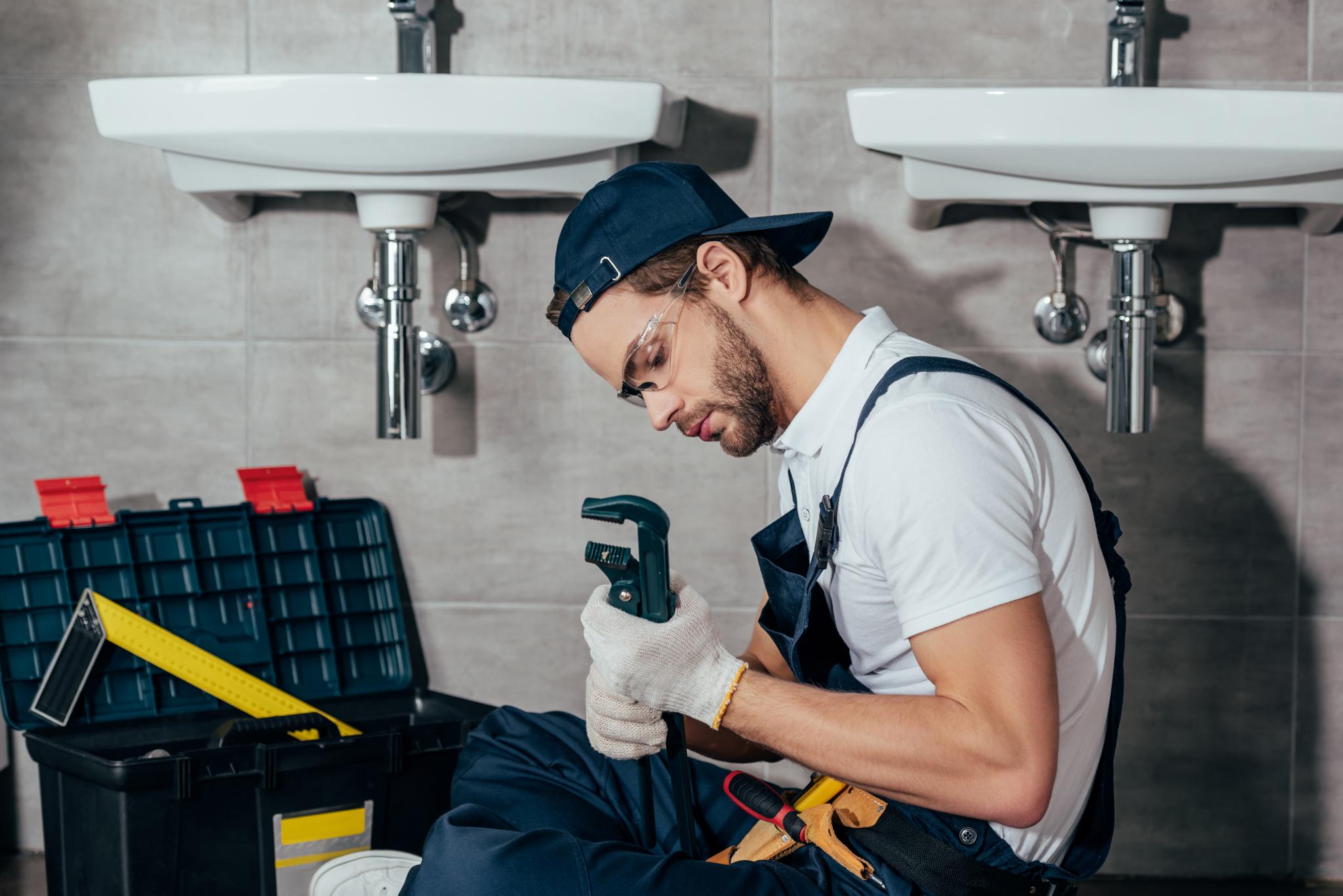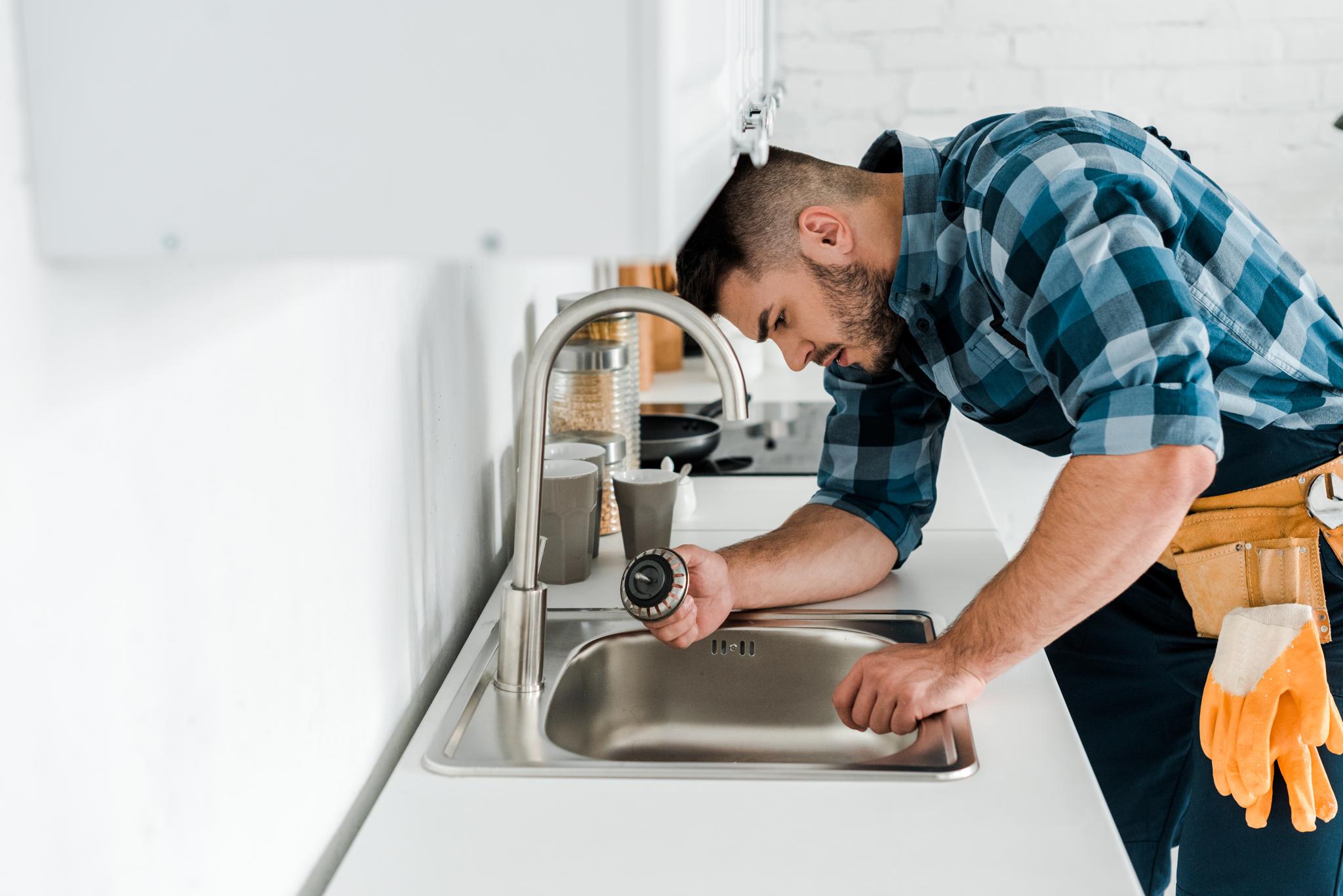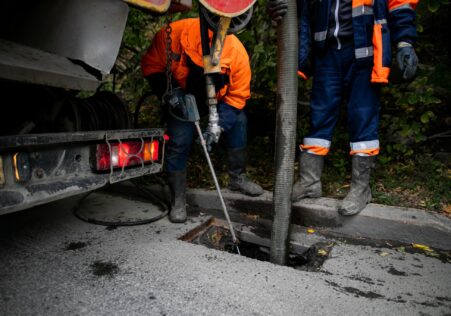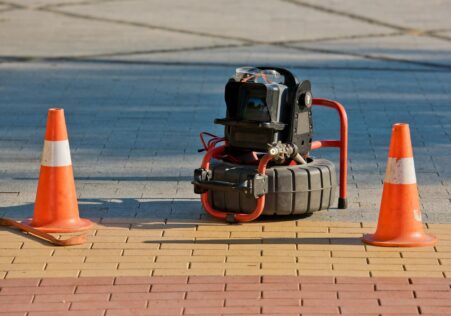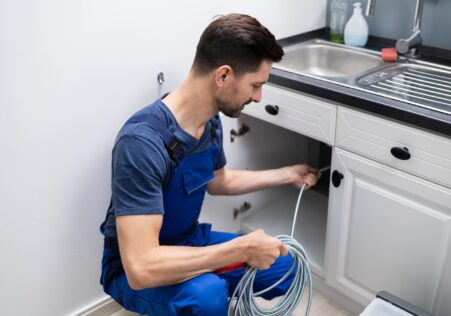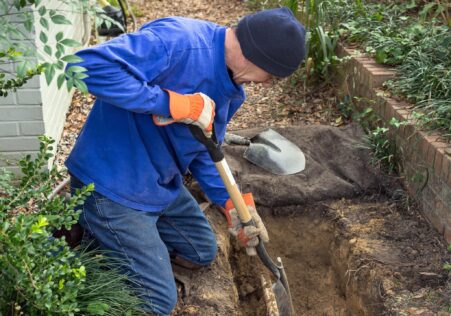What to Do When Your Toilet is Blocked: A Step-by-Step Guide
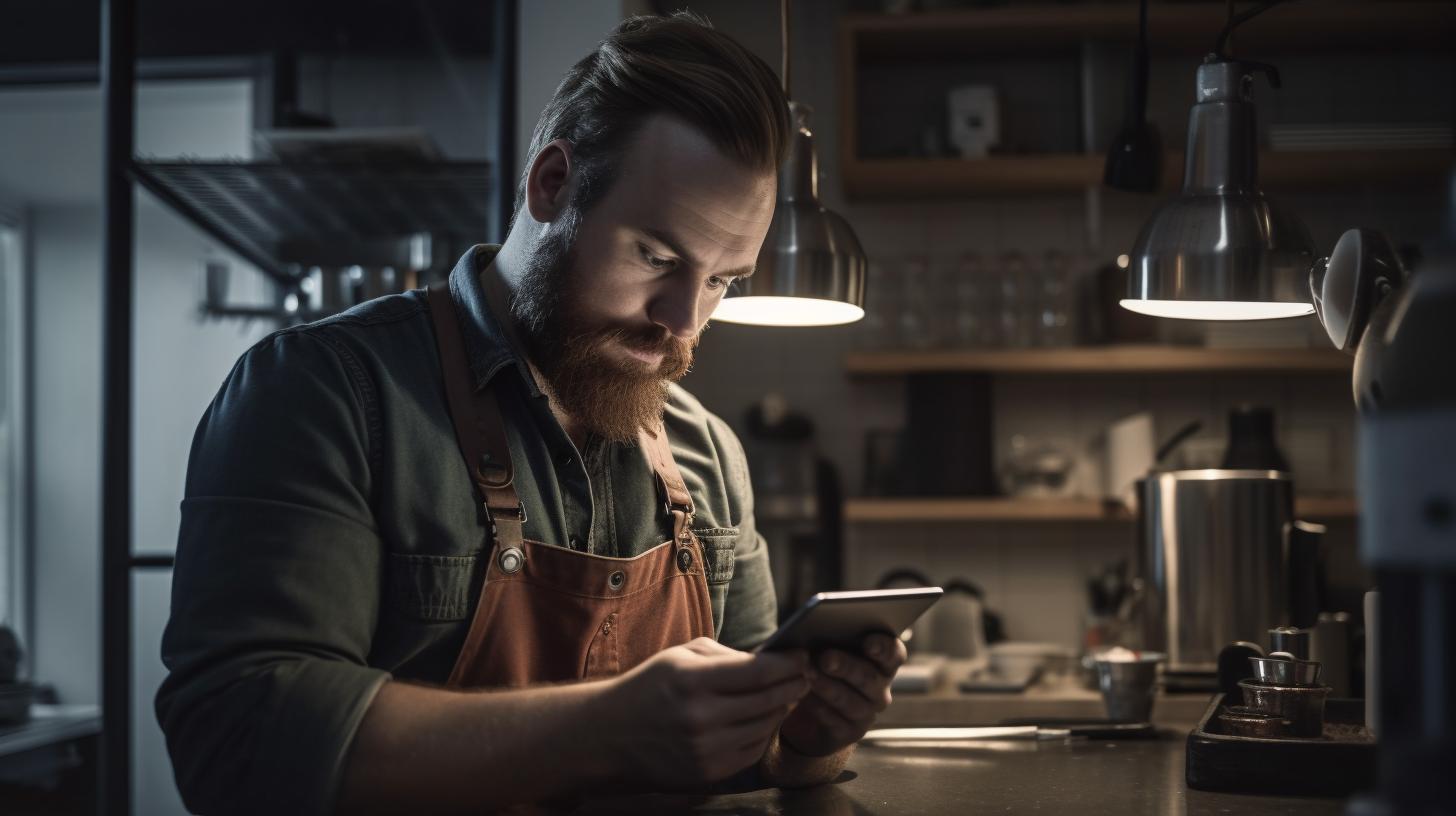
Toilet blockages can occur at any moment and can be a frequent household problem. They can be uncomfortable, messy, and inconvenient, and require immediate attention. However, you don’t need to call a plumber right away. In this blog we’ll guide you through the steps to unclog your toilet in no time.
Key Takeaways
- Toilet blockages are easily remediated with the use of simple tools like a plunger baking soda
The Tools You’ll Need
Before we begin it’s important to be prepared with these tools at hand:
- Rubber Gloves
- Plunger
- Baking Soda and Vinegar (Optional)
- A Wire Coat hanger, or a Plumbing Snake (Optional)
Step 1: Shut off the valve for water flow.
The first thing you should do when facing a clogged toilet is to shut off water valves on the toilet. This step ensures that no water will enter the tank as you try to get it unclogged. The valve is usually located near to the base of tank, on one side.
Step 2: Be sure to protect yourself with rubber gloves.
Protect your hands from any germs or bacteria present in your toilet bowl with rubber gloves prior to making use of any tool to clear the toilet.
Step 3: Use a plunger.
The plunger is by far the most efficient tool for clearing up blocked toilets. First, push down gently onto the plunger till all air is evacuated from it. then place it firmly on the hole in your toilet and begin to plunge continuously up and down for approximately 20 seconds. The suction generated by the movement of the plunger will assist in removing any blockages.
Tips:
- Use a firm but controlled motion.
- Fill in holes around sinks and shower drains, if they are near to stop the release of pressure as you plunge.
Step 4: Try baking soda and vinegar in a mixture.
If plunges don’t work then try this alternative method to pour half a mug of baking soda and a cups of white vinegar to the toilet. The mixture should sit for around 15 minutes. It will begin to bubble before it slows down it will be poured down with hot water (not at a boil) to flush out the obstruction.
Step 5: Use an iron coat hanger made of wire or plumbing snake.
If plunging, baking soda/vinegar methods have failed the problem, it’s time to use an electric coat hanger or plumbing snake. Straighten the coat hanger’s cord until you have a thick, thin wire with a hook bent at one end. You can also use to use the plumbing snake. It was specifically designed for clearing drain obstructions. Insert the tool into the drain hole in your toilet and twist around, twist, push and pull till you experience resistance; that’s where the blockage usually is. Be gentle and try to break any blockages using back-and-forth motion without causing damage to the pipeline.
Note:
- Do not overdo pulling or pushing actions hard as they can cause more harm.
Step 6: Turn on the water supply and test the result
Once you’ve eliminated any blockages, it is important to switch on the supply of water on your toilet. Then flush it several times to ensure that the water is flowing freely!
| Tools | Description |
|---|---|
| Rubber Gloves | Hand protection from potential bacteria or germs present in the toilet bowl. |
| Plunger | Most effective tool for clearing up blocked toilets. Press firmly over the hole in your toilet bowl and plunge vigorously up and down for about 20 seconds. |
| Baking Soda and Vinegar | Mixture to use if plunging doesn’t work. Pour half a cup of baking soda and one cup of vinegar into the toilet bowl. Let this mixture settle for about 15 minutes, then pour hot water down (not boiling) to flush out the blockage. |
| Wire Coat Hanger or Plumbing Snake | Tools to use if both plunging and baking soda/vinegar methods have failed. Straighten the wire coat hanger until you have a long thin wire with a hook bent at one end or use the plumbing snake, which is designed specifically for clearing drain clogs. |
Common Questions and Answers
How can I tell when my toilet is not functioning properly?
One of the most obvious indications of a toilet that is blocked is when the water fills up to the brim after flushing. You might also notice that the water drains in a slow manner, or hear sounds of gurgling coming through the toilet.
What can I do if my toilet is blocked?
If you believe the toilet is clogged and you are unable to flush it, do not attempt to flush it over again since this could cause flooding. Instead, shut off your water source to the valve on the side of the toilet. Then make use of a plunger to remove any obstruction. If that doesn’t work, call Melbourne Blocked Drains Plumber for professional help.
Can I stop my toilet from becoming blocked?
Yes! There are numerous options to avoid your toilet becoming blocked. These include avoiding flushing non-degradable products like Wet wipes, sanitary products or cotton wool down the toilet. You should also avoid the practice of pouring oil or grease down the drain, which could cause solidification and block pipes.
When should I contact a professional plumber for the problem of a toilet that is blocked?
If you’ve tried plunging your toilet, but it isn’t unblocking, or you think that there’s a problem with your plumbing system that is causing frequent blockages, you need to contact an experienced plumber such as Melbourne Blocked Drains Plumber . We’ve had years of experience tackling all kinds of plumbing problems and can swiftly diagnose and fix any issues without causing any interruption to your house.
How often should I get my drains cleared?
It is recommended to have your drains cleaned by experts like Melbourne Blocked Drains Plumber every 1-2 years. This will prevent obstructions and keep your plumbing system functioning smoothly. However, if you frequently experience drain blockages or slow draining water, despite making sure you are taking steps to prevent clogging them, then cleaning your drains every year is beneficial.
These methods are relatively easy to implement as the majority of items are available in homes. If you’re having trouble with your toilets, don’t be worrying after trying the methods mentioned above – contact Melbourne Blocked Drains Plumber ‘s expert plumbers located in Melbourne , if you’re in search of professional assistance with your blocked toilets.
Additional Information
- Is It Time for a CCTV Drain Inspection? Here's What You Need to Know
- Save Money and Time with Preventative Drain Care Practices
- Understanding CCTV Drain Inspection and the Benefits for Your Home
- Why Trenchless Pipe Relining is the Future of Condominium Plumbing
- The Do's and Don'ts of Keeping Your Drains Free from Blockages
- How to Tell You Need Drain Clearing Services for Your Business
- Reasons Why CCTV Drain Inspection is a Must Before Purchasing a Property
- How to Prevent Your Drains from Getting Blocked
- Why CCTV Drain Inspection is Essential for Maintaining Clean and Healthy Environment?
- CCTV Drain Inspections: A faster, Accurate and Effective Means of Identifying Root Issues in Drains


